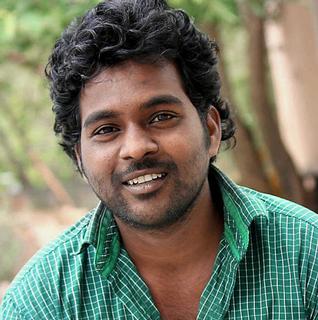Hyderabad, Jan 18: A Dalit research scholar of the University of Hyderabad (UoH), allegedly hanged himself to death 15 days after he was expelled from his hostel along with four other researchers in the wake of a complaint by Akhila Bharatiya Vidyarthi Parishand (ABVP) activists.
 Rohith Vemula, and four other Dalit students of Ambedkar Students Association (ASA) had been on a sleep-in strike in the open on the campus ever since their expulsion. On Sunday morning, following his 15th nightout, the student had strayed away from the protestors’ camp and spent his day in one of the rooms of New Research Scholar’s hostel. At 7.30 pm on Sunday, he was found hanging in the same room. He hanged himself using the blue banner of ASA, a student outfit which has been fighting for Dalit rights on the campus.
Rohith Vemula, and four other Dalit students of Ambedkar Students Association (ASA) had been on a sleep-in strike in the open on the campus ever since their expulsion. On Sunday morning, following his 15th nightout, the student had strayed away from the protestors’ camp and spent his day in one of the rooms of New Research Scholar’s hostel. At 7.30 pm on Sunday, he was found hanging in the same room. He hanged himself using the blue banner of ASA, a student outfit which has been fighting for Dalit rights on the campus.
Suicide note
In the five-page suicide note recovered from the room Rohith had mentioned how he always “looked at the stars and dreamt of being a writer” and an established academic. The research scholar hailed from Guntur district. “His mother is a daily wage labourer with an agricultural background. His JRF fund also used to support his family,” a student leader said.
The victim was a second year research scholar of the science, technology and society studies department and also a University Grants Commission’s Junior Research Fellowship holder. The student is survived by his mother and a younger brother. In his suicide note, the student had also pointed out that for the past six months he had not got his JRF funds.
University Vice-Chancellor P. Appa Rao expressed shock at the incident. Cyberabad police who had to rush to the campus following protests, however, did not comment on whether any case would be booked. Scores of students of the varsity laid siege to the hostel even as the Gachibowli police had to be rushed to the spot.
As per the university orders, five students, including Vemula, were denied entry into the hostel and permission to gather together following a scuffle between two students organisations —ABVP and ASA that took place on August 3, 2015.
It may be recalled that a scuffle broke out after ASA staged a protest at the university against ABVP’s attack on screening of the documentary, Muzzafarnagar Baqi Hai, at Delhi University. Tension mounted on the campus with agitated students preventing the police from shifting the body to the hospital. A case under section 174 of CrPC was registered in Gachibowli police station. As a precautionary measure, additional police forces were positioned on and around the campus.





Comments
Intolerance will spread more if we dont voice out of such oppression from the people who think they are superior than others...
No one is superior in the sight of ALLAH except by their Good deeds...
Brothers of Naren Guru..
Naren recently in your comments you mentioned there is no divide and rule in ur so called community.. Now can you brief us about this issue? Y the innocent life was taken by your great nationalist people???
All those oppressed should decide their fate themselves adapting the life style where they are secured.
They should join the community of equality is practiced more than preached.
Add new comment